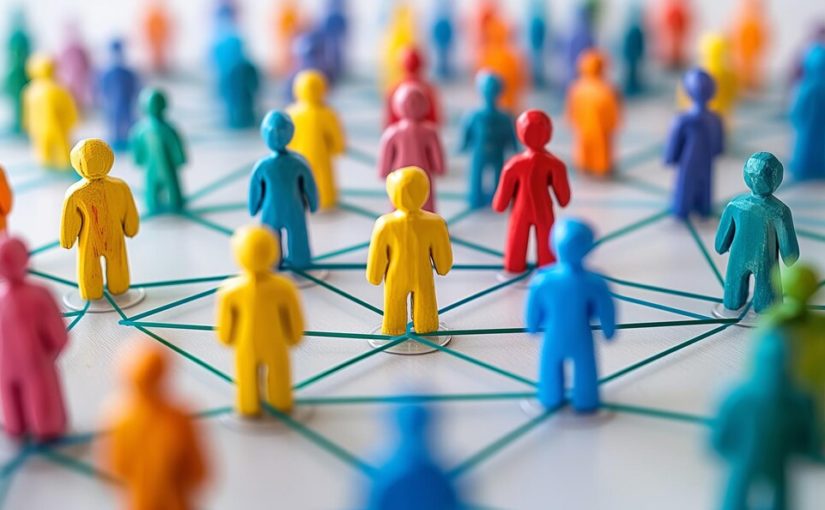The quote in the article comes from Rachel Carson: „In nature, nothing exists on its own.“
Everything depends on each other, especially in the area of learning, which includes mental and spiritual growth, it is not only our own will to learn or not, but the entire environment, the atmosphere and the group dynamics play an essential role. Looking at learning and learning content alone is not enough. It also plays a role whether what has been learnt can be applied directly.
The behaviour and actions we exhibit are also not possible on their own, as these also depend on many other factors. According to Lutz von Rosenstiel, behaviour is subject to four factors that cause us to exhibit a certain behaviour or perform certain actions. (Lutz von Rosenstiel, Erika Regnet, Michel E. Domsch: Führung von Mitarbeitern. Handbuch für erfolgreiches Personalmanagement. Schäffer-Poeschel Verlag. Stuttgart, 7., überarbeitete Auflage. 2014.)
The four factors influence each other, and the expected behaviour/action will only occur if they are in a favourable relationship. These are:
- Personal ability: own abilities and skills
- Individual will: own motivation, values and attitudes
- Social permissions: social rules and norms
- Situational enabling: inhibiting and facilitating factors, such as the environment and the context of the situation
Social permissiveness and situational facilitation are dependent on other factors that are beyond one’s control.
Epictetus‘ circle of influence also fits in with this above quote. (Epictetus. (2007). The art of living: The classical manual on virtue, happiness, and effectiveness (S. Lebell, Trans.). HarperOne.)
It divides three circles that lie on top of each other.
- The smallest inner circle symbolises the area over which we have complete control. This is the Circle of Control. For example, our own thoughts, our own decisions
- The centre ring is the area that I can influence, i.e. the Circle of Influence, e.g. the people we work with, the environment in which we live/work
- The largest, outer area is that which lies outside our own control, i.e. the Circle of Concern e.g. the thoughts of others, the weather
We humans are also dependent on others. We can influence some things, but not others, so the sentence is fully transferable to us humans, as we are also part of nature.
